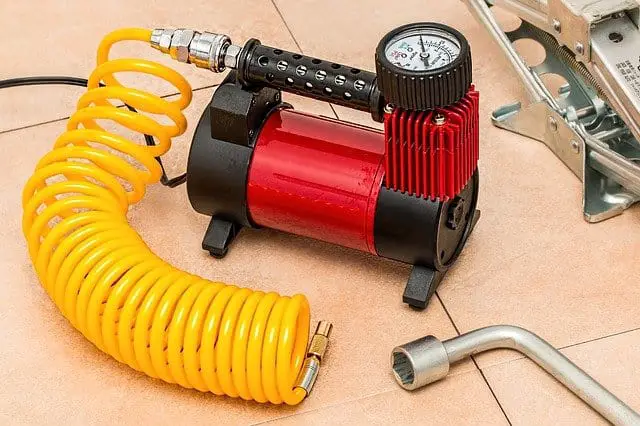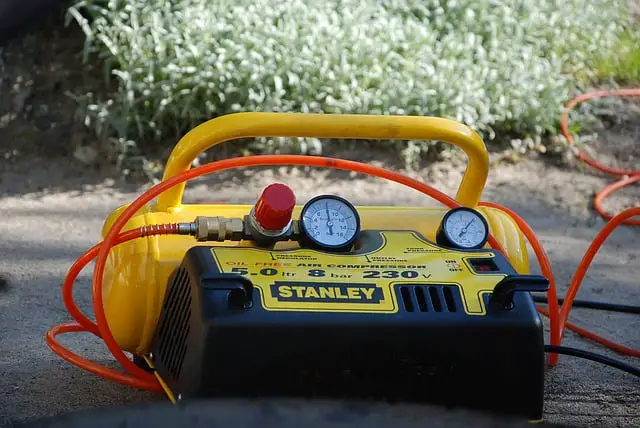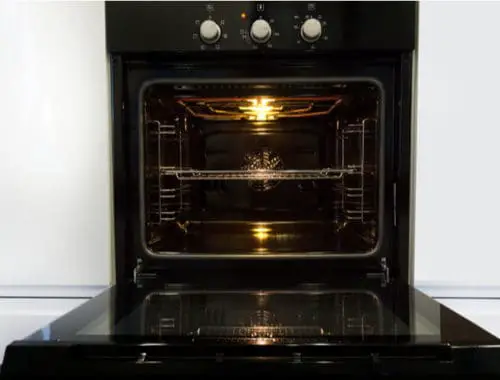An air compressor is a convenient tool to have on hand for the unexpected low or flat tire, and powering certain tools. Whether you’re filling tractor tires or truck tires, or running an air-powered tool such as a nail gun, there’s an air compressor for nearly every application. An air compressor makes fast work of getting your wheels pumped up and getting you back on the road again, and makes powering tools on job sites a breeze. Keeping one in your home garage that fits your everyday kind of use is an excellent idea, as well.
What is an Air Compressor and How Does It Work?

Image courtesy of Pixabay
An air compressor is a device that converts power into potential energy stored in the form of pressurized air. An air compressor uses either an electric motor, diesel, or gasoline engine to achieve this, and is useful for both inflating and tool applications. When the valve is opened, the pressurized air is released into whatever you’re inflating or powering.
How to Choose the Right Size Air Compressor
The most important factor to consider when choosing the right size air compressor is the PSI (pounds per square inch) and CFM (cubic feet per minute) requirements of your air tools. The performance of compressors is measured using both PSI and deliverable CFM. Ideally, you want a compressor with 1.25 to 1.5 times more CFM airflow at the recommended PSI than your air tool(s) require.
So for example, if an air tool requires 5.0 CFM at 90 PSI, then you should look for a compressor that delivers between 6.25-7.5 CFM at 90 PSI. If you choose a compressor that isn’t powerful enough, your tool will be underpowered and won’t perform properly, and the compressor will be overworked. Keep in mind that the sample calculation was for a single tool — if you plan on using multiple tools at once, you’ll need to consider the combined total CFM and PSI requirements. Finding the right size is key to maintaining the safety of your compressor.1
Features to Consider When Buying an Air Compressor

Image courtesy of Pixabay
Not all air compressors are created equal. An air compressor should be powerful enough to handle the task at hand, yet compact and light enough to move it where you need it. Here’s what to consider when evaluating the options in search of the best air compressor for your needs:
- Usage. While the majority of air compressors are for vehicular applications — inflating tires and other items — there are also air compressors that can be used to run air tools such as nail guns and spray painters.
- Type. There are a few types of air compressors available: those that use rotating impellers to generate air pressure, and positive-displacement compressors, which use reciprocating pistons to pressurize the air. Most home-based units are positive-displacement compressors and use single or dual cylinders.
- Power source. Next, consider how you want your air compressor to be powered. If you just need something to keep in the trunk in case of a flat tire while out and about, a DC-powered air compressor is a good choice. However, if you want faster inflation or need to power air tools, then an AC-powered air compressor is your best bet. Some models can switch between the two power sources, and there are even some models that are battery-operated.
- PSI. The PSI, or pounds per square inch, lets you know what sort of pressure the air compressor will provide. If you’re using it to run air tools, you’ll also need to check the minimum required PSI for the tool to ensure your compressor is adequately powered. Maximum working PSI also helps determine what applications your air compressor can be used for.
- CFM. The deliverable CFM, or cubic feet per minute, measures the amount of “free air” an air compressor uses while running, with air at atmospheric pressure (0 psig). Again, check your air tool for minimum requirements.
- Noise level. Air compressors can be quite loud, so look for models that are rated quiet. Anything rated below 80 dB is considered quiet. You’ll want to keep your hearing in mind when operating an air compressor and consider ear protection.2
- Attachments. Another important consideration when it comes to buying an air compressor is if it comes with additional attachments. While most people use their air compressor to inflate vehicle tires or power air tools, they also make fast work of filling inflatable items such as sports balls, air mattresses, and pool toys. Look for models with additional attachments that are compatible with whatever application you intend to use it for.
- Price point. Finally, consider how much you are willing to spend on an air compressor. Air compressors vary in price from $20-$200 or more.
An air compressor can make filling your tires or running air tools a quick and easy task, but it’s important to know what size compressor you need. By running a simple calculation, you can quickly and easily find the right size air compressor for your needs.
Article Sources
Home Life Daily uses only high-quality sources, including peer-reviewed studies, to support the facts within our articles. Read our editorial process to learn more about how we fact-check and keep our content accurate, reliable, and trustworthy.
- Behera C, Bodwal J, Sikary AK, Chauhan MS, Bijarnia M. Deaths Due to Accidental Air Conditioner Compressor Explosion: A Case Series. J Forensic Sci. 2017;62(1):254-257. doi:10.1111/1556-4029.13242
- Kurabi A, Keithley EM, Housley GD, Ryan AF, Wong AC. Cellular mechanisms of noise-induced hearing loss. Hear Res. 2017;349:129-137. doi:10.1016/j.heares.2016.11.013










